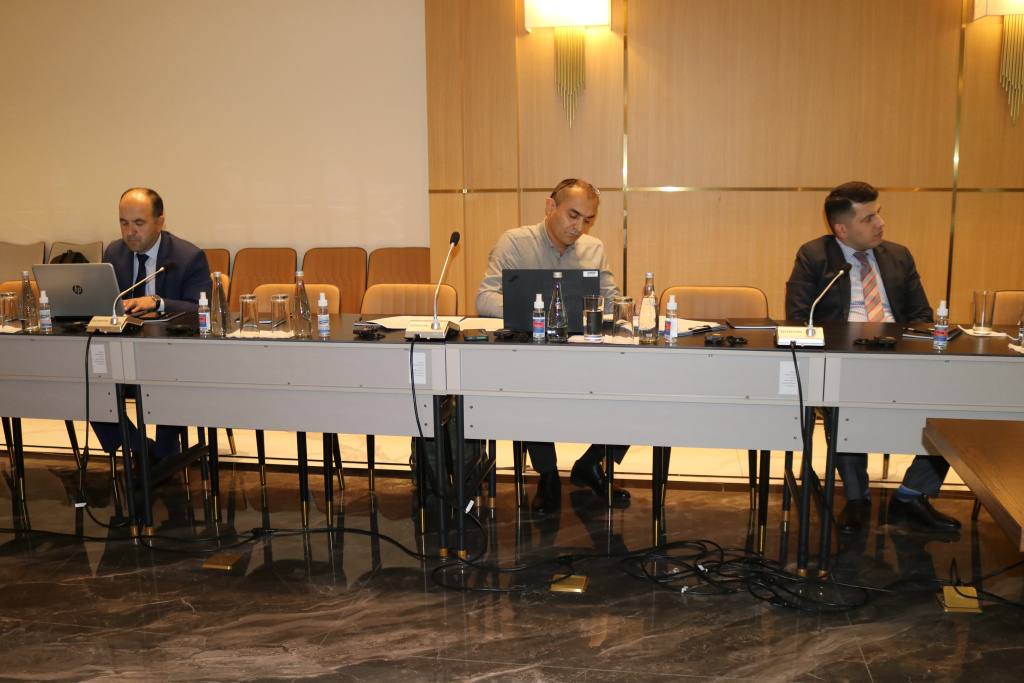FAO calls for shifting towards low emission and climate-resilient development

Dushanbe, Tajikistan, June 23, 2022 - The Food and Agriculture Organization of the United Nationals (FAO UN) along with the Committee for Environmental Protection under the Government of the Republic of Tajikistan/ National Determined Authority (NDA) and other Accredited Entities came together in a round table meeting on June 23, 2022 to discuss the Green Climate Fund Country Program 2022-2027 for Tajikistan which is currently under development in the framework of the second Readiness project “ Support the Republic of Tajikistan to strengthen its capacities for monitoring and evaluation of climate finance, identifying potential Direct Access Entities and engaging the private sector on climate change related investments with the Green Climate Fund”. The purpose of the gathering is to discuss the GCF Country Programme principles and the Strategic Pillars and country’s project portfolio.
The Green Climate Fund (GCF) is an operating entity of the UN Framework Convention on Climate Change (UNFCCC) financial mechanism, established in 2010 and fully operational since 2014. The vision of the Green Climate Fund is to support a paradigm shift towards low emission and climate-resilient development. The Fund is guided by innovation and targets its investments for transformational impact.
Climate change is a serious concern for Tajikistan, as the country is highly exposed and has a relatively low adaptive capacity. Tajikistan is considered the most vulnerable country to climate change in Europe and Central Asia, as it already suffers from low agricultural productivity, water stress, and high losses from disasters.
The Government of Tajikistan prioritized the reduction of vulnerability to the impacts of climate change by utilizing full-scale integration of the climate resilience and adaptation measures into the planning and development of the green infrastructure in all key sectors of energy, transport, agriculture, and water.
As it was mentioned by the FAOR Mr. Oleg Guchgeldiyev: “GCF Country Program 2022-2027 is very important document to attract climate finance to the country and implement country obligation against Paris agreement and NDC document”.
Considering the climate change issue is multi-faceted, therefore, its solution has many stakeholders involved, including different ministries and government institutions at the national level, specific commissions, existing working groups, important academic institutions, banks, private units, public organizations, and international donors, who have a mandate, interest, and influence or concerns related to climate change, environmental protection or other issues of natural resources as well as those that are engaged in national decision-making processes, particularly for investment decisions.
The development of the Green Climate Fund Country Programme development followed an inclusive approach allowing all key stakeholder groups to actively engage with the National Designated Authority in developing project ideas and submitting those for potential inclusion into the project pipeline. The Green Climate Fund Country Programme is planned to last till 2027, however, the project portfolio shall be revised every two years or on annual basis at NDA approval. Accredited entities were tasked with submitting new project ideas in the coming weeks towards finalization of the country programme. This is very significant step to shift from the planning of activities to realization of actions focused to decrease GHG emissions.

.png)
.png)









